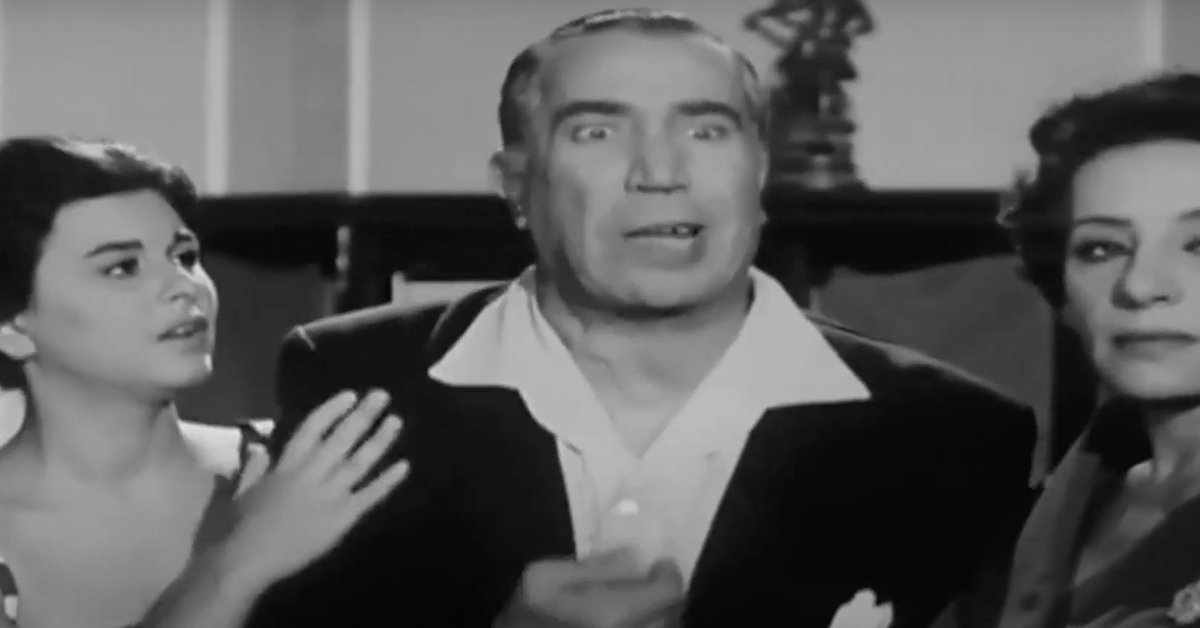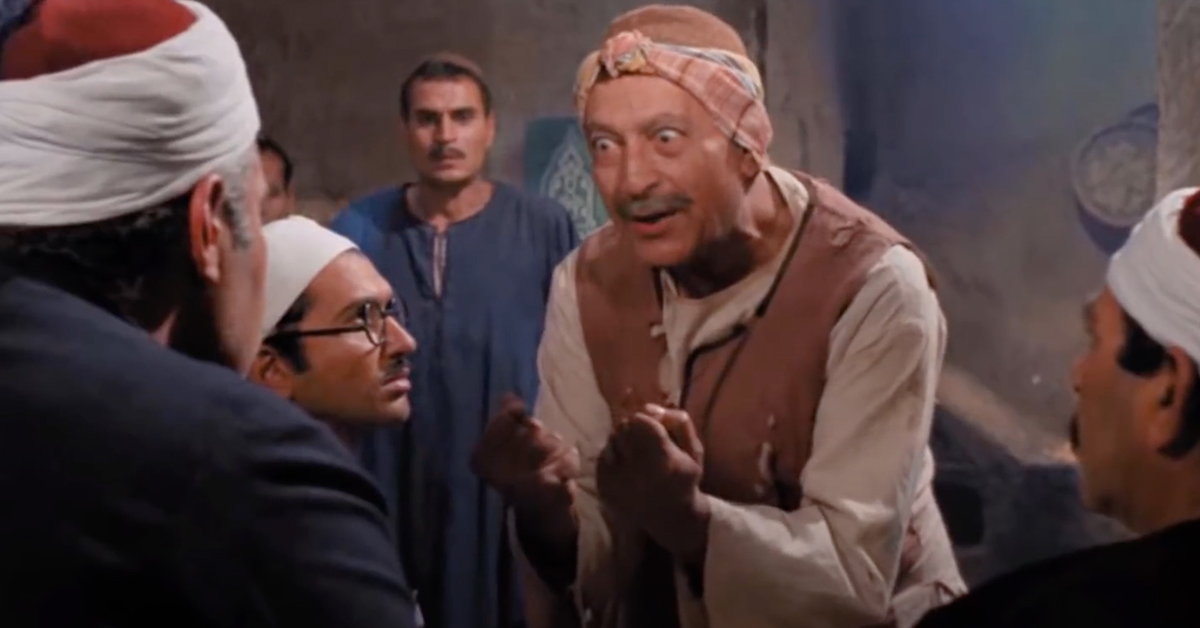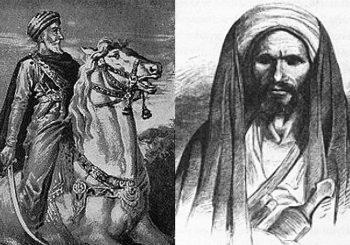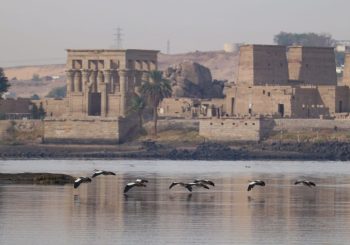
Almost every true Egyptian cinephile will have a long list of film references that somehow manage to make their way into day-to-day conversations.
These references – or rather memorable phrases, which are often associated with older films – have become a staple part of Egyptian youth culture, with almost any young Egyptian recognizing phrases such as Tawfik Eldekn’s “ya ah, ya ah” from the 1958 film ‘Bahebak ya Hassan’ (I Love You Hassan) or even Abdel Fattah el Kosary’s “ya safayeh el zebda el sayha” (oh, containers of melted butter) from the 1942 film ‘Law Kont Ghani’ (If I Were Rich).
Other than memorable film phrases however, Egyptian cinema has also had its fair share of memorable monologues. Powerfully performed and wonderfully written, some monologues from some older Egyptian films have managed to leave their mark for generations to come.
Much like the various film references people often tie into their daily conversation, these monologues are just as memorable and some of the phrases within them can be recognized in a matter of seconds.
Below are a few examples of powerful and memorable monologues from Egyptian film history; Mahmoud el Meligy’s monologue from the 1969 film ‘El Ard’ (The Land), Ahmed Zaki’s monologue from the 1992 film ‘Ded el Hekooma’ (Against the Government), Faten Hamama’s monologue from the 1957 film ‘La Anam’ (Sleepless), Adel Imam’s monologue from the 2006 film ‘Omareit Yacoubian’ (The Yacoubian Building) and Youssef Wahby’s monologue from the 1960 film ‘Eshaeit Hob’ (Love Rumor).
Mahmoud el Meligy’s ‘El Ard’ Monologue
This powerful monologue from Youssef Chahine’s 1969 film ‘El Ard’ (The Land) is pristinely performed by the legendary Egyptian actor Mahmoud el Meligy. Showcasing his theatre background through his accurate voice control and refined movements, the late actor passionately delivers a moving speech that revolves around patriotism, defending one’s land and one’s identity.
The most memorable part of this monologue comes in the form of the repeated phrase, “kona regala we we’fena wa’feit regala” (we were men and we took the stance of men), reiterating the point that the ‘true men’ are those who didn’t back down in defending their land.
Ahmed Zaki’s ‘Ded el Hekooma’ Monologue
Based on a true incident that happened in Egypt, the 1992 film ‘Ded el Hekooma’ (Against the Government) revolves around the case of the school bus and train collision in which a number of children lost their lives. This incident angered many Egyptians, as they were in disbelief that such a collision could even occur.
In this re-imagined trial, the late legendary actor Ahmed Zaki is a lawyer defending the children’s parents, and he delivers a memorable and exceedingly moving speech directed towards the judge. As he breaks down towards the end, one can’t help but feel every word rattle down their spine. Although the actual trial may not have necessarily been quite as sensationalist, this powerful performance surely reflects the multitude of emotions one must have been through at the time.
Faten Hamama’s ‘La Anam’ Opening Monologue
This opening monologue in the 1957 film ‘La Anam’ is an intimate conversation Faten Hamama’s character has with God, in which she explains her story and how her relationship with her father developed. In the monologue, she questions God as to why she goes about doing evil deeds as she does not understand the actions she undertakes – which are made clear as the film progresses.
This classic film is a wonderful story of a girl who develops an ‘Electra Complex’ with her father, and therefore goes out of her way to sabotage his relationships with other women. Hamama’s opening monologue is both moving and intriguing, seamlessly paving the way for what’s to come.
https://youtu.be/_h9FxXxN9kk
*This is the full-length film, the monologue is at the very beginning.
Adel Imam’s ‘Omareit Yacoubian’ Monologue
Originally a novel by the renowned Alaa Al Aswany, The Yacoubian Building is a wonderful and intricate story that sheds light on various layers of Egyptian life. In this monologue from the film version of the story, Adel Imam’s character drunkenly speaks about what Egypt once was and what has become of it. He talks about Egypt back in its heyday, saying it was revered and sought after, while now it has deteriorated and foreigners aren’t as eager to visit it as before.
This is a great short speech, one that reflects the feelings of many older Egyptian generations who long for an Egypt they used to know and love.
Youssef Wahby’s ‘Eshaeit Hob’ Monologue
Ending this collection on a lighter note, this comedic monologue from the 1960 film ‘Eshaeit Hob’ (Love Rumor) is a classic gem. One can still watch Youssef Wahby’s on-point performance and laugh out loud every time.
Wahby’s contrast in character and rather theatrical performance of his fake ‘devastation’ over the discovery of Omar Sherif’s ‘letter from Hend Rostom’, is both hilarious and awe-inspiring. One can’t help but think that comedy isn’t quite delivered in the same way as it used to be in Egyptian cinema.
*Featured image: Mahmoud el Meligy in ‘El Ard’ (The Land)







Comment (1)
[…] موقع Egyptian Streets 5 أمثلة لبعض المونولوجات القوية والتي لا تنسى من تاريخ […]